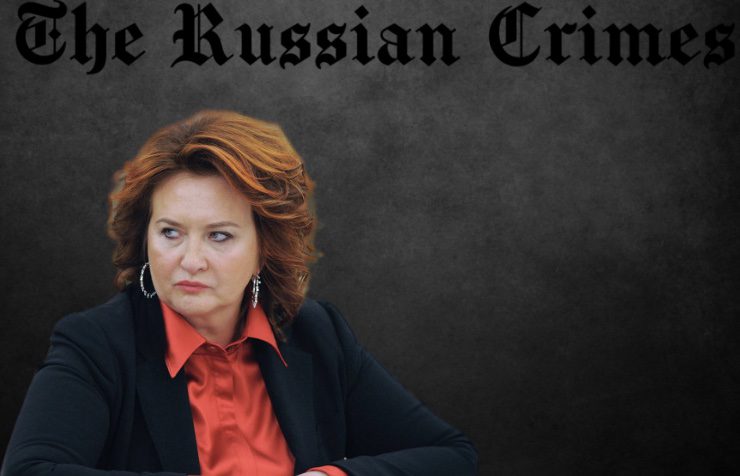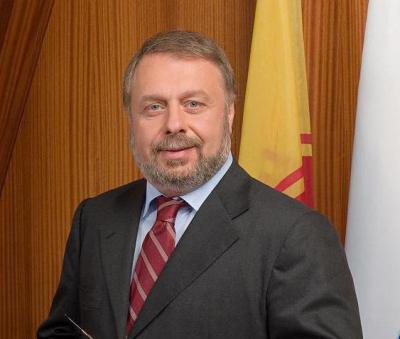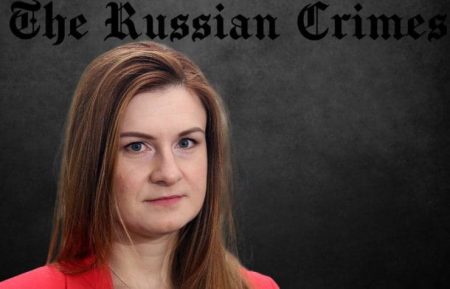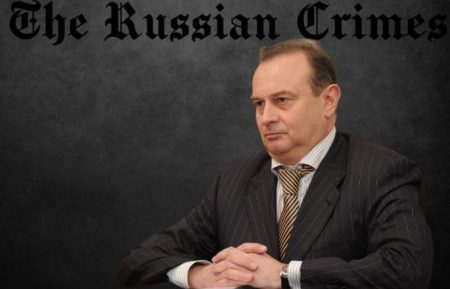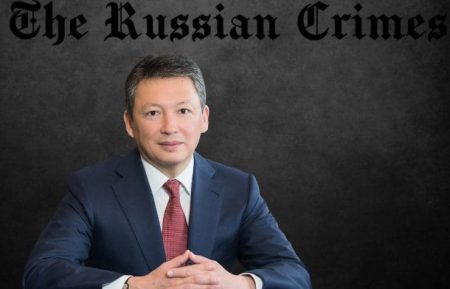Full name:
Skrynnik Elena
Skrynnik Elena Date of Birth
30 August 1961
Skrynnik Elena Citizenship
Russia
Skrynnik Elena Professional field/official position
Agriculture Minister of Russia (2009 – 2012)
Skrynnik Elena biography
SRKYNNIK Elena Borisovna (b. 1961) graduated from the Chelyabinsk Medical Institute in 1986.
- In 1992, Elena Skrynnik completed her studies at the Academy of National Economy under the Government of the Russian Federation, after which she trained in France and Germany as a leasing specialist. In 1994, she founded the interregional company Medlizing, working with the Russian Ministry of Health to acquire foreign medical equipment. Since 1997, Skrynnik has led the Russian Association of Leasing Companies, and since 1998, she has chaired the expert council on leasing at the Federation Council.
- In 2000, she joined the Board of the Russian Union of Industrialists and Entrepreneurs.
From December 2001 to April 2009, she served as the General Director of the Agro-Industrial Leasing Company (Rosagroleasing). The company was suspected of corruption during the presidency of Boris Yeltsin. In 2012, the Accounts Chamber noted a “lack of data and information on the total volumes of agricultural machinery, equipment and breeding animals purchased and leased by Rosagroleasing.” - In November 2008, Skrynnik became a member of the Supreme Council of the ruling party, United Russia. From March 12, 2009, to May 21, 2012, Elena Skrynnik held the post of Minister of Agriculture of the Russian Federation. After her resignation in the fall of 2012, the investigative bodies attempted to interrogate Skrynnik over a case of corruption in Rosagroleasing, but she did not appear for interrogation, explaining this by staying in France at the time.
During Skrynnik's leadership at the Russian Ministry of Agriculture and for some time after her resignation, the official Kremlin propaganda highly praised her activities in this role, claiming that an uninterrupted system of providing fuel and lubricants for agricultural machinery was created. However, the company responsible for this, founded by Skrynnik, was state-owned, even though almost all of Russia’s agriculture is private. This created opportunities for corruption.
However, shortly after Skrynnik’s resignation, it became evident that even from an official standpoint, her Ministry had become a hotbed of corruption. - On November 27, 2012, Rossiya-1 released a 25-minute investigative documentary film “Those in Power.” In it, Skrynnik was labeled an accomplice in the embezzlement of 39 billion rubles from the state budget. The creators of the film noted that the billions of rubles allocated by the state, but not received by farmers, ended up in the accounts of the British company Bryce-Becker, founded by Skrynnik, as well as in the accounts of the AgroEuroSoyuz company, founded by her brother Leonid Novitsky.
Like all the top officials of the Putin regime, Elena Skrynnik never lived in poverty, and her income, even officially declared, significantly exceeded her ministerial salaries. According to her official tax return in 2008, her income amounted to 10.735.000 rubles in 2009 – 10.835.000 rubles, and in 2010 – 7.384.000 rubles, not including real estate and cars. At the same time, her overseas property (specifically, a house in France), which she eventually admitted to owning, was not included in her declaration. Furthermore, she is suspected of owning the elite La Prairie clinic on the shores of Lake Geneva in Switzerland, while being a Russian government official. - In August 2017, the Swiss prosecutor's office closed the case against Skrynnik for money laundering and released the freeze on her local bank accounts, which had 70 million Swiss francs at that time. It is likely that the case was closed because the Russian investigating authorities did not cooperate in gathering evidence and, as it is supposed to be in Western justice system, there was not enough evidence of corrupt activities by the Russian ex-official. It seems that a fair trial for Skrynnik's activities, both in Russia and any other country, can only happen after the Putin regime falls in Russia.
According to the newspaper "Vedomosti," Skrynnik is involved in founding several companies.
- LLC "Medlizing"
- CJSC «Control»
- LLC "Russian medical company" (co-founder – Koykolanen, Olga Vladimirovna)
- LLC "Rusmedinvest-M"
- LLC "Leasing-Transit" (co-founder – Baranov, Alexey Yu)
- CJSC "Investregionlizing" (co-founders – CJSC "Medlizing", Russian Association of Leasing Companies, LLC "Russian medical company", LLC "Rusmedinvest-M," Krivtsova, Larisa Valentinovna)
- LLC. "Exclusive Dekoreyshn" (co-founder – Henri de Monspe)
- LLC "Aesthetic Center" Swiss Perfekshen
- LLC. "Continent Art" (co-founders – LLC "Avtogrif", LLC "Nice Classic" Molchanov, Andrei Mikhailovich, Baranov, Alexey Yurievich)
- CJSC "European Business Cooperation Center" EuroInvest "(co-founder – Starovoytenko, Anatoly Ivanovich).
- “Rosagroleasing” (gen. Director)
LLC "Aesthetic Center Swiss Perfection», which became a subsidiary of La Prairie Swiss clinic of aesthetic surgery
According to official statements, Skrynnik had the following income and property:
- 2010 – Earnings: 7 million 384 thousand rubles. She owns 4800 square meters of land, residential buildings of 2142 and 231.9 sq. m., an apartment of 115.4 m., and a Mercedes-Benz C class LM 500.
- 2009 – income of 10 million 835 thousand rubles. She owned two cars, including a BMW 760.
- 2008 – official income – 10 million 735 thousand rubles
Skrynnik admitted to having a house in France (approximately 200 sq. m), where she has been living with her four children since the autumn of 2012. Property abroad was not mentioned in Skrynnik's tax declarations during her time as Minister of Agriculture of the Russian Federation. She is no longer in civil service after retiring.
Skrynnik Elena family
She has been married three times, and all three marriages ended in divorce.
Her first husband, Sergei Skrynnik, whom she married as a student and lived with for six years, was the former Head of procurement of Tangible Resources of the Chelyabinsk region. He was found guilty of accepting bribes in the summer of 2012 and sentenced to 7 years in prison after their divorce.
Elena's eldest daughter from her first marriage died in a car accident in 2003 at the age of 21.
From 2004 to 2007, she was married to Yuri Kukota. Elena has twins, Irina and Mikhail (b.2005), from her second marriage. The marriage ended in scandalous circumstances, which were publicized in the press.
Her third husband, Dmitry Belonosov (b.1971, Novokuibyshevsk, Samara region), was a singer in the pop music genre. This marriage was from 2008 to 2010 and ended with a signed marriage contract, in which each kept their property and savings; Belonosov claimed that he was the owner of Elena Borisovna's company only on paper and never received income from their activities.
In a November 2012 interview, Skrynnik said she has a total of four children. In August of that year, two babies were born in Moscow, and a court decision officially registered them. Since 2012, Skrynnik has been living with her children in her own villa on the Cote d’Azur in France. She visits Russia periodically to take part in the investigation.
Leonid Novitsky, Skrynnik’s younger brother, is a Russian businessman and race car driver. He is a highly regarded athlete, having won the FIA World Cup on rally-raids twice. He has the best performance among Russian participants in the history of the “Dakar” rally.
Skrynnik is accused of several crimes:
- She has been involved in corruption at Rosagroleasing and during her time as Minister of Agriculture of the Russian Federation.
- She is part of the leadership of United Russia, the ruling party of the Putin regime, and supports the Kremlin’s criminal policies.
- She has implemented anti-market measures in the agricultural sector, including politically motivated protectionism against Western trading partners of Russia.
Kompromat, 10/10/2005
It seems unlikely that domestic farmers or machine builders benefit from the actions of Elena Skrynnik. According to an article, an examination of the activities of the Accounting Chamber of Madame Skrynnik revealed the following: the analysis of leasing operations showed that the cost of agricultural technology increased by 38.9% under finance leases, which appeared to be favoring the leasing company and not the domestic machine builders.
Russian equipment is no longer being purchased, and instead, German, Dutch, and American units are being exclusively acquired. The imported equipment is obtained on credit by foreign manufacturers and then distributed throughout Russia via the extensive network of “Rosagroleasing.” This results in significant profit for “Rosagroleasing.”
Sobesednik 13.04.2009
The agricultural producers who have experienced the influence of the director of “Rosagroleasing” have serious grievances against Skrynnik. They recall encountering expensive shoes and diamond earrings during field visits. They anonymously share stories about Skrynnik’s luxurious lifestyle. Additionally, they express fear of her autocratic rule over “Rosagroleasing.”
Reporter, 05.06.2009
Yuri suggested Elena meet in a neutral place to discuss and resolve the issue of educating their children. He compared the situation to a crime story involving a minister's ex-husband.
…
Yuri told the police that near his car, he was approached by the head of his wife's security, Vladimir Smol, along with three guards who stood 10 meters away during the conversation.
Kukota said he was scared for his life after the meeting.
Yuri shocked the police by stating, “During our conversation, my ex-wife threatened to hire someone to kill me if I continued to fight for the right to see our children. She also called me a simple man who could easily face trouble on the streets.”
Reporter, 08.07.2003, Sobesednik, 07.04.2009
Media focus on Skrynnik and her previous role intensified when she became the Minister of Agriculture of the Russian Federation in March 2009. However, the first scandal dates back to 2003, when Skrynnik headed the Rosagroleasing leasing companies. An exposed letter described a budget manipulation scheme she was involved in.
The scheme entailed Russian factories working with Skrynnik to open accounts not only in the state-owned Rosselkhozbank, but also in the commercial Akademhimbank (now ConverseBank-Moscow), led by Antonov, who was previously the First Deputy General Director of Rosagroleasing. The letter alleged that the second account in Antonov's bank was a requirement for cooperating with Rosagroleasing. Funds were moved between accounts as part of the scheme, remaining unused for years.
Aside from these accusations, the article also includes excerpts from a document by the Audit Chamber on Rosagroleasing's activities, which revealed that funds intended for agricultural technology purchases were not fully utilized. Additionally, various violations were identified, including instances where funds were used for purposes not defined in the company's charter.
Nearly 99% of the funds paid to OJSC Rosagrolizng, OJSC Russian Agricultural Bank, and the State Unitary Enterprise Federal Agency for Food Market Regulation from the budget were used for wages, taxes, bank commissions, and licenses rather than for their intended activities.
A contract from January 28, 2002 between CJSC Moscow Investment Real Estate Agency and Rosagroleasing involved property search, for which CJSC Moscow Investment Real Estate Agency received $30,000 as compensation.
After the Audit Chamber found that the equipment purchased on credit costs the farmer 40% more, the interest rate dropped to 2-3% per year. However, "Rosagroleasing" takes almost all the property as collateral, so if the farmer does not pay the loan, they could lose not only the equipment, but everything.
In reality, Skrynnik has absolute control over "Rosagroleasing". Her mother and her brother, Leonid Novitskiy, worked under her. When Skrynnik became Minister, her brother took over her position in "Rosagroleasing".
Skrynnik has gathered a team of supporters, including Deputy Prime Minister Viktor Zubkov, who chairs the board of directors of "Rosagroleasing", and President Dmitry Medvedev, who collaborated with Skrynnik on the national project "Agriculture".
"Rosagroleasing" spent the budget on corporate parties."Gazeta", 20.11.2009, Vedomosti, 02.02.2010
At the end of 2009, the General Prosecutor’s Office audited "Rosagroleasing" and found several violations. For instance, the company set up intermediaries between the company and the lessees, resulting in higher service prices. Furthermore, after signing purchase contracts, "Rosagroleasing" in some cases paid large sums as advances to the selling companies, while the equipment was delivered much later. During this time, private companies could use the funds for their own purposes, including transferring them to offshore accounts. The prosecutor’s office was unhappy that the company did not establish regional offices, even though the Board of Directors decided to set up 11 branch offices in 2007.
Following the General Prosecutor’s Office's check in late November 2009, the First Deputy Prime Minister and Chairman of the Board of Directors, Zubkov, called an emergency meeting of the board of directors of "Rosagroleasing", during which he instructed the CEO, Leonid Orsik, to return the money transferred to offshore accounts, stop advancing non-delivered equipment, and ensure equal access to federal leasing for all agricultural machinery manufacturers. Orsik was supposed to report on the rectification of the issues at the January board meeting, but unfortunately passed away on December 31 at the age of 48 due to heart failure.
Experts speculate that Skrynnik's problems may have arisen due to conflicts with Zubkov, as he wants all agricultural policy matters to be under his personal control. Additionally, he had to react strongly to the "Rosagroleasing" violations to protect his reputation, as he chaired the company’s board of directors.
"Interventionists were remembered in bad account," Kommersant, 05.02.2010.
At the beginning of 2010, the Audit Chamber reviewed the use of federal budget funds allocated for agricultural market interventions, raw materials, and food at the end of 2008. According to the audit, the unplanned expenditure on storing 8 million tons of grain purchased during the 2008-2009 grain interventions is projected to cost the 2010 budget 8 billion rubles. As this grain could not be sold during the crisis, the money spent on it will go to waste.
It is expected that a portion of the inexpensive grain from the new harvest will be bought by the state to later sell at a higher price. The state agent handling the purchase receives a fixed fee, and any profits from stabilizing the grain market prices go to the budget. In 2008, the Agency on regulation of the food market (ARPR), headed by Vasily Krutin, acted as the state agent when buying a record amount of grain.
Mikhail Odintsov, an auditor of the Accounts Chamber, questioned the need for and legality of the large-scale grain purchase in 2008, claiming that some grain was bought based on illegitimate orders from the Ministry of Agriculture. These orders, issued by Alexei Gordeyev, totaled 970 million rubles.
Skrynnik stated to the government’s presidium that the large-scale state purchase of grain allowed for supporting producers, stabilizing prices, and creating a financial basis for conducting fieldwork.
Vedomosti, 02.02.2010
The companies that “Rosagroleasing” worked with were familiar to Skrynnik. In 1998, Skrynnik established three firms in Moscow – “Rusmedinvest-M”, “Medlizing”, and a Russian medical company. Later, these firms, through affiliated entities, purchased 15% of “Akademkhimbank”. Many technology providers to “Rosagroleasing” subsequently became customers of this bank.
Two companies connected to Skrynnik – TD “Grain” and “Voronezh land” – partnered with a state-owned leasing company at least partially. Both were established in 2002 and sold grain, which farmers used to pay off debts to “Rosagroleasing” when they lacked real money.
The main concerns of the Prosecutor General’s Office are related to the relationship between “Rosagroleasing” and Saransk Excavator Plant (OJSC “Sarex”). The prosecutor’s office claims that “Sarex” was moving money received from “Rosagroleasing” to bank deposits, as well as to some commercial organization involved in offshore money withdrawal.
“Sarex” is also connected to Skrynnik's structures. In April 2007, the company “Agroevrosoyuz” owned 50.42% of “SAREX”. “Agroevrosoyuz” was established in 2002 by TD “Grain”.
On May 25, the Board of Directors of “SAREX” was changed, and it included the general director of “Agroevrosoyuz”, a former legal department employee of “Rosagroleasing”, the head of procurement of “Rosagroleasing”, the President of “Medlizinga”, the head physician of the aesthetic center Swiss Perfection, a member of the advisory council of “Rosagroleasing”, and the head of the Department of Agriculture scientific and technological policy at that time. Similarly to the situation with Akademhimbank, the arrival of the Skrynnik team at the plant led to its success. A state order from “Rosagroleasing” helped “SAREX” become the largest Russian producer of tractors in 2008.
Skrynnik brought the entire team from “Rosagroleasing” to the Ministry of Agriculture. Two deputy directors of the company – Sergei Korolev and Oleg Aldoshin – were appointed as deputy ministers. Additionally, the former CEO of “Volgogradagrolizing” – a sub-leasing partner of “Rosagroleasing” – Alexander Belyaev also became a deputy minister. Deputy Head of Department of “Rosagroleasing” Vyacheslav Nungezer now leads the Department of the Ministry of science and technology policy, and the head of the department on work with the personnel of the leasing company Olga Dulepova-Meneylyuk now heads a relevant department of Ministry of Agriculture. Former co-owner of the leasing company “Lipetskagrosnab” and the head of the regional subdivision “Rosagroleasing” Oleg Donskih has been leading the department of administrative work of the Ministry of Agriculture since August 2009.
“State auctioneer was estimated at 300 thousand rubles of bribes” Kommersant, 16.01.2010
Scandals linked to both former husbands of Skrynnik. In January 2010, the ex-husband of Skrynnik (a student) Sergei Skrynnik, who is currently the head of the department of public procurement of Tangible Resources of the Chelyabinsk region, was arrested for taking bribes in Chelyabinsk. It is alleged that he had received payments from commercial firms for protecting them during the auctions in 2009. Criminal proceedings were initiated for “taking bribes on a large scale.” Materials of testing of UBEP regional police department formed the basis for the investigation. According to the investigating authorities, Mr. Skrynnik, along with unknown individuals, received over 300 thousand rubles from representatives of business organizations in September and December 2009, as well as expensive alcohol. The bribes were given for illegal actions in submitting applications out of time, providing access to participate in the auction, protecting the participation of commercial entities in the management of ongoing auctions, and eliminating competing organizations at competitions. Skrynnik has not been accused yet.
Life.Ru, 04.06.2009
Yuri Kukota, who married Skrynnik in 2004, reported to the police, accusing her of making murder threats. Two children were born to Kukota and Skrynnik in 2005, Michael and Irina. Two years later, the marriage ended. Skrynnik filed for divorce and then prevented Kukota from seeing the children. According to Kukota, he proposed to discuss the issue with Skrynnik, but she and her security threatened him with physical violence. Skrynnik, however, claimed that Kukota asked her to marry him again and she promised to consider it. No criminal case was initiated.
Stringer, 27.11.2012
She has faced numerous claims from law enforcement agencies responsible for investigating economic crimes over the span of 12 years. The first scandal occurred in 2002 when the Audit Chamber discovered that the value of agricultural machinery purchased for the agro-industrial complex had increased by 38.9% compared to the selling price of the manufacturer, even though the products bought by the federal leasing fund should not have exceeded a 18% increase.
Then Skrynnik emerged from the water without getting wet. Later, the General Prosecutor’s Office uncovered a budget scheme: “Rosagroleasing” gave credit to suppliers who then bought agricultural machinery in advance with delayed delivery. The suppliers also moved money to bank accounts and offshore accounts. For example, in December 2008, “Rosagroleasing” transferred over 730 million rubles to Saransk Excavator Plant for agricultural supply contracts, but acceptance acts totaling less than 80 million rubles were signed in October 2009. Investigators discovered that funds from “Rosagroleasing” were transferred to deposit accounts by “Sarex” and a commercial organization involved in fund withdrawal to offshore accounts. Overall, investigators wanted to know from Skrynnik the fate of about 40 billion rubles from the budget.
Stringer, 04.12.2012
The current leadership of Rosagroleasing believes that Elena Skrynnik took company funds abroad. In an exclusive interview with “Komsomolskaya Pravda,” the former Agriculture Minister denied all charges, including explaining how she acquired property in France. She stated that she had been a businessman for a long time and is now quite wealthy.
This photo was taken at a different, more serious event – a government function. Our expert says that the watch matches the situation: “They are called the Bell & Ross BR01 Airborne 672 Diamonds Limited Edition. It is a rare, ultra-cool model released in 2009 with only 99 pieces made. It’s adorned with 672 black and white diamonds, and the European retail price is 40,000 euros.”
Sobesednik, 10.12.2012
Madame Leasing's special pets, as farmers called the authoritative Skrynnik during her time at “Rosagroleasing,” were two companies: “Sarex” – Saransk Excavator Plant, owned by “Agroevrosoyuz” (owned by Skrynnik’s brother Leonid Novitskiy) since 2007, and the concern “Tractor plants,” a major owner of which is Nikita Mikhalkov's son-in-law, Albert Bakov. During the 2008 crisis, the state allocated 21 billion rubles to “Rosagroleasing” to support agricultural producers: 5.6 billion went to “Rosselmash,” 500 million to “Eurotechnica” and another Stavropol enterprise, and 13 billion ended up in companies otherwise associated with Skrynnik. Surprisingly, the General Prosecutor’s Office still has not shown interest in the fate of these significant state budget resources. Skrynnik’s brother and mother, Tamara Nowickaya, worked at “Rosagroleasing,” and regularly became the founders and owners of agricultural companies unfazed by drought or crop failure. Investigators established Skrynnik’s connections with the companies TD “Grain” and “Voronezh land.” – “Sarex” received 700 million rubles for machinery it never produced, while our machines, which were in actual demand, remained idle in warehouses at that time, – complained Ludmila Orlova. – “Sarex” based their production on our drawings, simplified them, reduced production, and began selling off the assembly line for the same price as our equipment – ruble for ruble, – said Sergey Mernikov. – They imposed strict conditions on us, such as insuring the equipment with a specific company at rates 15% higher than the market, and allocating funds not only in the state “Rosselkhozbank” but also in the private “Akademhimbank.” It was clear which companies these were connected to, and no one hid it in private conversations, but these coerced “contributions” would have simply destroyed us as manufacturers. We refused the oppressive conditions. As a result, they stopped taking our equipment, and we were left without orders for almost three years, – said Konstantin Babkin, chairman of the “Rosagromash” association board of directors, to “Interlocutor.”
EG.ru, 20.12.2012
Elena Skrynnik is involved in another scandal after the documentary "Power haves" was shown on “Russia 1” Channel. She was accused of embezzling 39 billion rubles after leaving the position of Minister of Agriculture. The debt was found in the company “Rosagroleasing” where she worked from 2001 to 2009. The company's main function was to buy agricultural equipment using state funds and lease it to large farms. Skrynnik was accused of directing state money meant for farmers to accounts of the British company “Bryce Becker” and the company “AgroEvroSoyuz”, which she co-founded with her brother, racecar driver Leonid Novitskiy.
Star Hit, 16.01.2013
– Dmitry, did she transfer part of her business to you when she became a minister?
– I don't see anything wrong with it. At that time, she was my wife, and the appointment to the Cabinet of ministers happened very quickly, without any prior notice. According to the official status of “A” category, she was not allowed to run a business. So, she transferred her business to me. At that time, she owned several companies. Two of them, if I remember correctly, were related to leasing. Eventually, they were dissolved due to being ineffective. The third company – a beauty salon – went back to Elena Borisovna after the divorce, even though I was the legal owner, I did not receive any dividends.
Moskovsky Komsomolets, 28.10.2015
However, experts from the Investigation Committee examined the company's documents for 2008-2009 and found many suspicious contracts signed by Elena Skrynnik herself, not by a stamp with her name. Although the former Minister claimed that all the employees just stamped bills with her name.
The examination of the documents was part of a criminal case under Art. 159 of the Criminal Code (fraud on a large scale) related to the theft of funds from “Rosagroleasing”. Skrynnik was involved in the case, but as a witness.
The former agriculture minister emphasized several times that she has nothing to hide from her home country. She referred to the 39 billion rubles as a debt that arose after her departure, not a theft from the corporation.
RT, 28.10.2015
“The Federal Prosecutor’s Office confirmed that it initiated proceedings against the former Russian Minister of Agriculture and others in the spring of 2013 based on suspicions of money laundering. As a result, the Federal Prosecutor’s Office confiscated property. After conducting numerous investigations, the Federal Prosecutor’s Office requested legal assistance from Russian authorities, but the requests remain unanswered to this day,” said the radio station “Moscow speaking” citing the prosecutor’s office.
“Century”. 03/29/2016
The General Prosecutor’s Office of Switzerland has reiterated that the accounts of the former head of the Ministry of Agriculture of Russia, Elena Skrynnik, were frozen in connection with a money laundering case. In response to a request from journalists, the official spokesperson Linda von Burg stated that about 50 million Francs were frozen. “Madame Leasing” continues to deny this information.
Linda von Burg, responding to European journalists, stated that the Federal Prosecutor’s Office of Switzerland initiated a criminal proceeding in spring 2013 against the former Russian Minister of Agriculture and others on suspicion of money laundering, as per Article 305 “of bis” §2 of the Criminal Code of Switzerland. It was also confirmed by the representative of the Swiss General Prosecutor’s Office that accounts of Elena Skrynnik and other suspects, totaling about 50 million Swiss francs, were blocked by Bern. Von Burg mentioned that the assets were seized by the FPO in this context, and after a thorough investigation, the FPO requested mutual legal assistance from Russia, which has not been fulfilled yet. It was expected that the ex-minister was involved in a criminal scheme for embezzlement of budget funds, which was uncovered by the Russian Interior Ministry in 2012.
“Vedomosti”. 03/30/2016
According to an informed source speaking to “Interfax”, Russian authorities plan to reopen the investigation of the so-called “Rosagroleasing” case, involving former Minister of Agriculture Elena Skrynnik.
On December 12, sources informed “Interfax” that the investigation of the embezzlement case of over 1 billion rubles from the state-owned company “Rosagroleasing” has been suspended indefinitely due to the failure to identify the person liable to be accused. The investigation may be continued as there are many unrelated episodes to former Ministry of Agriculture officials.
In November 2012, the TV channel “Russia 1” aired a program claiming that 39 billion rubles of budgetary funds were embezzled from the state corporation “Rosagroleasing” while Elena Skrynnik, the future Minister of Agriculture, was its leader. The filmmakers alleged that the money went to the accounts of companies founded by Skrynnik and her brother Leonid Novitsky.
A criminal case was opened the same year regarding the theft of funds from the state corporation. In 2013, Skrynnik was questioned as a witness in this case, and her deputy Alexei Bazhanov was detained but later fled abroad.
October 27, 2015 the Head of International Legal Cooperation of the General Prosecutor’s Office of Russia Saak Karapetyan said that the Russian supervisory authority asked Switzerland to seize the 12 million Swiss francs in the accounts of Bazhanov, accused of stealing 1.125 billion rubles of funds of “Rosagroleasing” “and a number of Russian banks.”
The Swiss prosecutor’s office later said that on its own initiative imposed an arrest on the accounts of former Russian deputy minister for the sum of 7 million francs on suspicion of money laundering. It was also announced the freezing of accounts of Skrynnik at 60 million francs.
Skrynnik Elena, Links and materials
- Elena Skrynnik: “The talk about my theft of 39 billion rubles is a slander!
- Skrynnik Elena Borisovna (Who’s Who in Business Petersburg)
- Deputy Head of Ministry of Agriculture Chernogorov sent to resign
- Elena Skrynnik refused to appear for questioning in Rosagroleasing case
- State company to supply fuel and lubricants for the countryside established in Russia
- Federal Antimonopoly Service to keep an eye on vegetable prices
